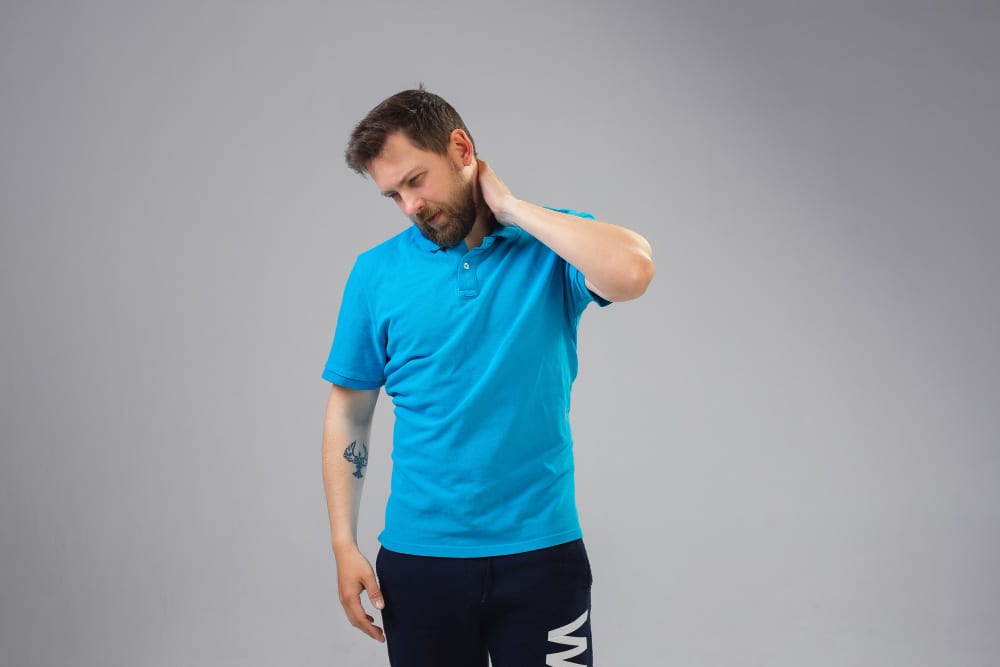Conditions affecting the muscles and tendons close to the shoulder joint are collectively known as the rotator cuff problem. Problems with these structures might make it tough to move about and perform routine tasks without pain. Excessive use, trauma, and age-related deterioration are common triggers.
Understanding the Root of the Rotator Cuff Problem
The shoulder joint boasts impressive mobility, enabling movement in multiple directions. However, this versatility comes with a price, as the shoulder is prone to various overuse injuries. Among the most prevalent causes of shoulder pain are tendinitis and tears in the muscle group surrounding the shoulder, known as the rotator cuff. Gaining insights into these conditions is crucial for seeking proper treatment and effective management.
What is the Rotator Cuff Problem?
It is a series of injuries or abnormalities affecting the rotator cuff, which is a group of four muscles and tendons that surround the shoulder joint. This problem typically arises from excessive use, repeated motions, or injury, resulting in symptoms such as shoulder discomfort, diminished strength, and limited mobility. Frequently encountered conditions include tendinitis within this area and a syndrome involving pressure. Approaches to managing rotator cuff problems may encompass periods of rest, engagement in physical therapy, and, in more serious cases, the consideration of surgical measures.
Symptoms
Early on, individuals may notice mild pain when lifting or lowering their arms out to the side. As the rotator cuff problem worsens, symptoms can include:
- Aching radiating down the outer upper arm
- Stiffness and reduced shoulder mobility
- Difficulty reaching behind the back.
- Discomfort lying on the affected shoulder.
- Weakness when raising the arm over the head.
If any of these symptoms you identify in your body, you should have an online doctor consultation for prevention of this disease.
Causes
Common causes of rotator cuff problems include:
- Sports like tennis, swimming, and baseball require repetitive overhead motions.
- Occupations with prolonged overhead arm positioning – painting, carpentry, etc.
- Poor posture over many years
- Sleeping in the same shoulder position nightly
Diagnosis
Properly diagnosing rotator cuff problems is crucial for developing an effective treatment plan. Physicians may conduct a comprehensive evaluation, including physical examination, medical history, and imaging tests like MRI or ultrasound. It’s better to seek a GP who can help you in diagnosis, we provide online GP registration to help people with diagnosis and treatment. Accurate diagnosis ensures appropriate treatment and prevents unnecessary delays in recovery.
Treatment Options
If shoulder pain persists beyond a few days, individuals should consult their physician. If you want to consult a GP, we have an online GP registration platform through which you shall be able to find a GP near me who will help you in the treatment providing you with good medical care.
Treatment options for shoulder injuries depend on the specific condition and its severity. Some common treatment approaches include:
-
Rest and Activity Modification:
Giving the shoulder adequate rest and avoiding activities that exacerbate the pain can help with healing. However, complete rest may worsen stiffness and weakness, so gentle range of motion exercises may be better early on.
-
Physical Therapy:
Specific exercises and stretches can improve shoulder strength, flexibility, and function.
-
Medications:
Over-the-counter pain relievers or anti-inflammatory drugs can help manage pain and reduce inflammation.
-
Steroid Injections:
In some cases, corticosteroid injections into the shoulder joint may provide temporary relief from pain and inflammation.
-
Surgical Interventions:
For severe injuries or cases where conservative treatments fail, surgery may be necessary. Surgical options may include arthroscopic procedures to repair tears or open surgeries for more complex issues.
Rehabilitation
Rehabilitation plays a crucial role in recovering from rotator cuff injuries. Physical therapy is often a key component of the rehabilitation process, helping individuals regain strength, range of motion, and functional abilities in the shoulder joint. A skilled physical therapist will design a personalized rehabilitation program tailored to the specific injury and the individual’s goals. Therapy should emphasize scapular stability and rotator cuff strengthening exercises using proper mechanics.
Preventing Shoulder Overuse Injuries
Taking preventive measures can reduce the risk of shoulder overuse injuries and promote shoulder joint health. Here are some tips:
-
Reduce Overhead Arm Movements:
Reduce the number of times you do overhead arm movements to avoid putting too much strain on your shoulder joint. To reduce strain, choose various motions.
-
Maintaining Proper Posture:
Maintain proper posture to relieve stress on the shoulders and back. Practice this on a regular basis, both during ordinary duties and when seated.
-
Develop Stronger Shoulder Muscles:
To improve stability and reduce the risk of injury, strengthen the shoulder muscles with exercises. Incorporate these workouts into your fitness routine daily.
-
Rest Shoulders Between Activities:
Make sure your shoulders get ample relaxation after engaging in strenuous activity. Prioritize adequate recovery time to enhance joint health and avoid overuse problems.
Conclusion
The shoulder’s wide range of motion leaves it susceptible to overuse injuries like rotator cuff problems. Grasping these problems and getting proper treatment is key to regaining normal shoulder function and easing pain. Preventive techniques like proper shoulder mechanics and strengthening exercises also help maintain shoulder health and avoid overuse issues. If shoulder pain persists or worsens despite home treatments, seeking medical care promptly is advisable for timely intervention and optimal outcomes. With the right guidance and rehabilitation, individuals can recover from common shoulder injuries and regain pain-free mobility and optimal shoulder function.
